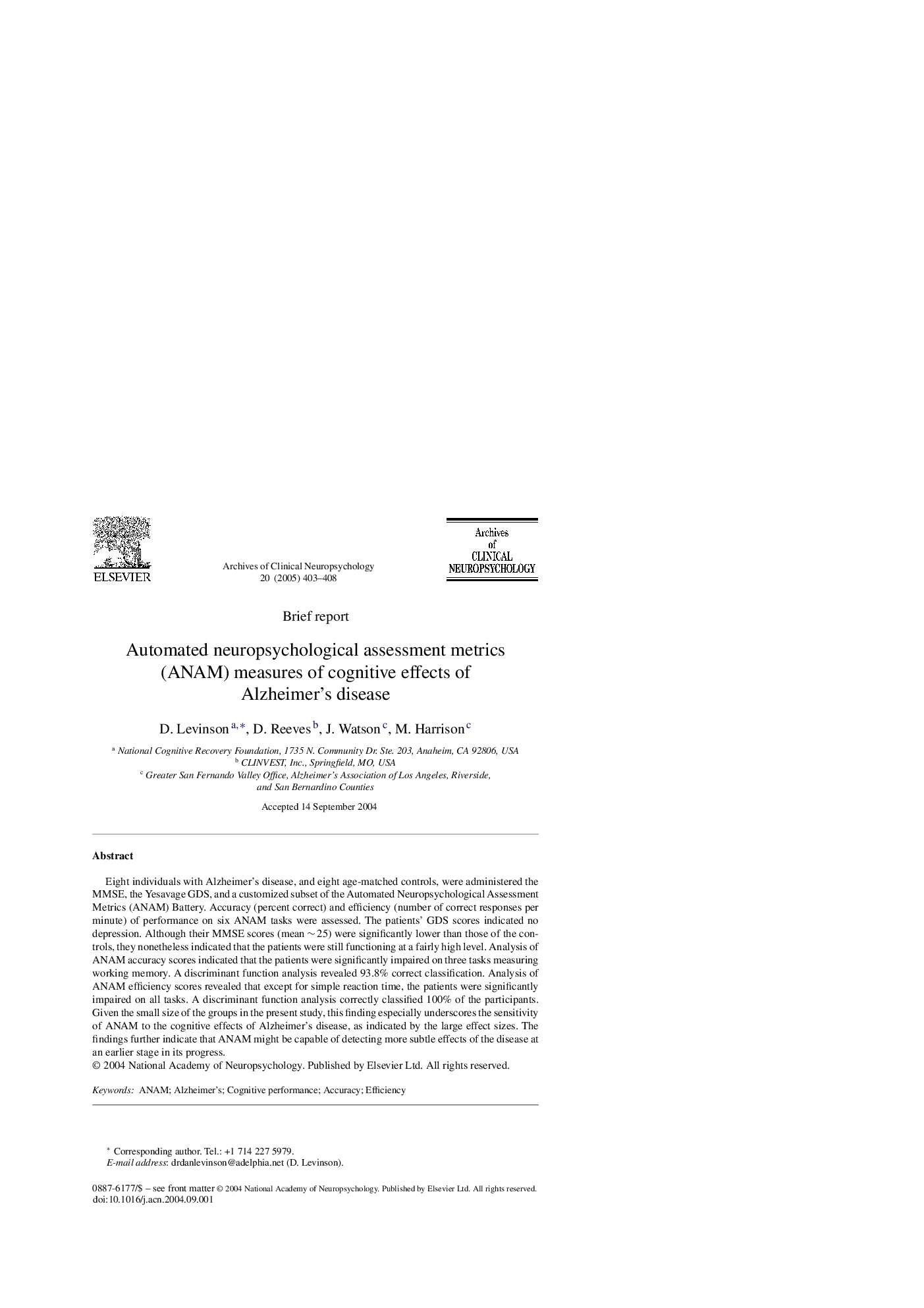| Article ID | Journal | Published Year | Pages | File Type |
|---|---|---|---|---|
| 9719985 | Archives of Clinical Neuropsychology | 2005 | 6 Pages |
Abstract
Eight individuals with Alzheimer's disease, and eight age-matched controls, were administered the MMSE, the Yesavage GDS, and a customized subset of the Automated Neuropsychological Assessment Metrics (ANAM) Battery. Accuracy (percent correct) and efficiency (number of correct responses per minute) of performance on six ANAM tasks were assessed. The patients' GDS scores indicated no depression. Although their MMSE scores (mean â¼Â 25) were significantly lower than those of the controls, they nonetheless indicated that the patients were still functioning at a fairly high level. Analysis of ANAM accuracy scores indicated that the patients were significantly impaired on three tasks measuring working memory. A discriminant function analysis revealed 93.8% correct classification. Analysis of ANAM efficiency scores revealed that except for simple reaction time, the patients were significantly impaired on all tasks. A discriminant function analysis correctly classified 100% of the participants. Given the small size of the groups in the present study, this finding especially underscores the sensitivity of ANAM to the cognitive effects of Alzheimer's disease, as indicated by the large effect sizes. The findings further indicate that ANAM might be capable of detecting more subtle effects of the disease at an earlier stage in its progress.
Related Topics
Health Sciences
Medicine and Dentistry
Psychiatry and Mental Health
Authors
D. Levinson, D. Reeves, J. Watson, M. Harrison,
